New Delhi: As the government gears up to present the Union Budget for FY2025-26 in February, Deloitte has outlined a comprehensive list of sectoral and policy-related expectations.
The document released by Deloitte spans India’s economic trajectory, taxation reforms, sectoral demands, and recommendations for fostering growth, competitiveness and inclusion.
Here’s a detailed look at the key highlights:
Economic Outlook and Key Challenges
Growth and Investment
- India’s Economy Slows: India’s Q2 growth fell to 5.4% due to low capital formation and weak export performance. However, rural consumption remained resilient.
- Infrastructure Spending: The government increased infrastructure investments significantly, with a 28.4% rise in FY24 and an expected 17% increase in FY25.
- MSME Credit Growth: Credit to MSMEs surged by 13.4% for micro and small enterprises and 20.5% for medium enterprises, indicating investment in capacity expansion.
Inflation and Geopolitical Risks
- Persistent Inflation: Retail inflation, driven by volatile food prices, remained above the RBI’s target, with vegetable prices increasing by 42.18% in October 2024.
- Global Trade Volatility: Geopolitical tensions (e.g., Israel-Iran war) and US policy shifts may disrupt global supply chains, impacting Indian exports.
Taxation Reforms
Direct Taxes
- Corporate Taxation: Deloitte recommends extending the concessional 15% corporate tax rate for new manufacturing firms and Global Capability Centers (GCCs) to attract investment.
- Clarity on Contingent Considerations: Taxation of contingent consideration during share transfers needs clarification.
- R&D Incentives: Reintroducing weighted deductions for R&D expenditures and expanding the patent box regime to include other intellectual properties like copyrights and trademarks.
Indirect Taxes
- Customs Amnesty Scheme: Proposed to resolve disputes and reduce litigation burdens, especially benefiting small businesses.
- Support for Exports: Simplifying Free Trade Agreement compliance under CAROTAR and ensuring IGST exemptions under the MOOWR scheme for smooth export operations.
Personal Taxation
- Ease of Compliance for NRIs: Simplified TDS processes for property purchases from NRIs and tax refunds credited directly to overseas bank accounts are key proposals.
- Incentives for Electric Vehicles (EVs): Streamlining valuation rules for EV-related perquisites and extending benefits to promote a green economy.
Sectoral Expectations
Automobile
- EV Adoption: Deloitte emphasizes simplifying refund procedures for EV manufacturers to reduce working capital constraints and revising GST rates for hybrid vehicles to bridge the gap between traditional and electric vehicles.
- Production-Linked Incentives (PLI): Addressing delays in disbursements and relaxing domestic value addition norms to encourage participation.
Agriculture
- Value Chain Development: Recommendations include expanding cold storage facilities, promoting digital agriculture, and incentivizing crop diversification.
- Export Competitiveness: Addressing fragmented landholdings and low productivity to enhance India’s global agricultural exports.
Technology and Telecommunications
- Digital Infrastructure: Deloitte envisions investments in a robust digital stack for governance, education, and healthcare services.
- R&D Ecosystem: Proposals include boosting domestic semiconductor manufacturing and incentivizing green technologies.
Education and Skilling
- Workforce Development: Aligning education curriculums with industry needs through apprenticeship programs and public-private partnerships.
Emerging Themes
Green Economy
The government is expected to:
- Reduce duties on renewable energy equipment and EV components.
- Promote R&D for sustainable solutions like green hydrogen.
Space and Technology
India’s space ambitions can be catalyzed by incentivizing private-sector collaborations and improving the ease of doing business for startups in this domain.
Policy Recommendations
- Infrastructure Development: Continued emphasis on expanding roads, multi-modal logistics parks, and skilling initiatives.
- Export Promotion: Extending remission schemes like RoDTEP and creating incentives for high-value manufacturing.
- Inflation Control: Focus on value chain strengthening and reducing post-harvest losses through cold storage and digitization.
Deloitte’s budget expectations provide a roadmap for India to sustain its growth momentum while addressing global uncertainties. By prioritizing infrastructure, taxation reforms, sector-specific measures, and digital innovation, the government has an opportunity to create a balanced, inclusive, and competitive economy.
This comprehensive set of recommendations underscores the need for timely and targeted interventions, paving the way for India to achieve its ambitious growth targets.
Also Read –
ICEA Unveils FY26 Union Budget Recommendations to Achieve $500 Billion Electronics Target





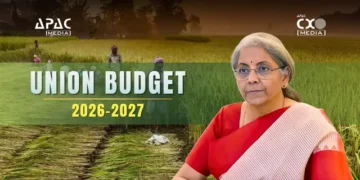




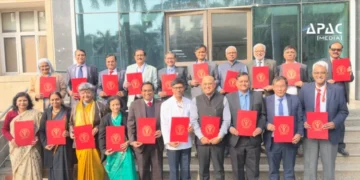







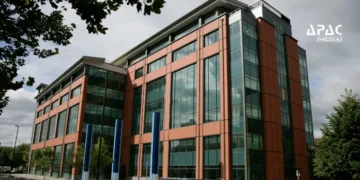






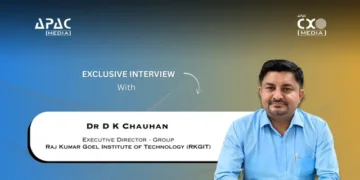

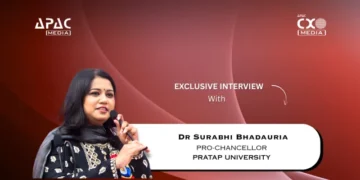
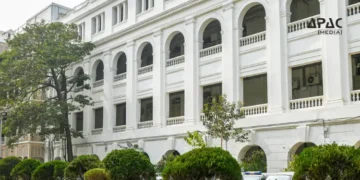

















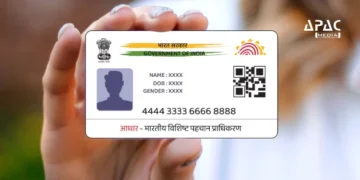
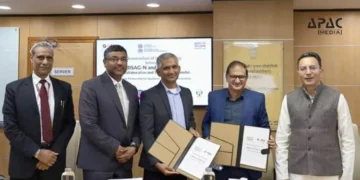











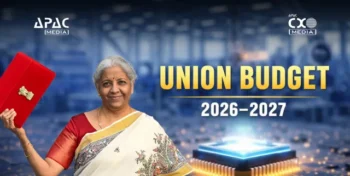







Discussion about this post